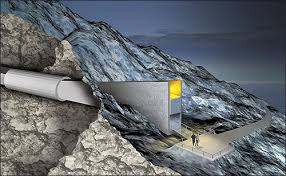A multitude of different seeds are hidden within closed vaults. One of these was situated in Aleppo, Syria, but after four years of internal strife there, it has been severely damaged. Thus the one in Svalbard had to be opened.

Svalbard:
is mostly known as Spitsbergen – the only permanently inhabited island in Norway’s most Northern archipelago, situated in the Arctic, close to the North Pole. The arctic climate and the large natural reserves makes it an ideal place for polar bears, reindeers, marine mammals, arctic foxes and sea birds to reproduce. However it’s much less agreeable for humans: only around two thousand six hundred inhabitants live there permanently.
Even if there were to be a total electricity cut and the inhabitants of the island would have to be evacuated, these seeds collected from the entire world would be preserved, frozen and kept for another two hundred years inside this specially constructed Global Seed Vault.
Aleppo’s vault was more or less operative during the civil war, but after 2012 it became impossible to either grow or supply the Middle Eastern researchers with the seeds they needed for their continuous work. Therefore Grethe Evjen, a Norwegian agricultural expert for the international agricultural centre for research in dry areas (ICARDA) demanded that their main office be moved from Aleppo to Beirut.
Research is essential for the maintenance of humanity especially with the climate changes that we’re experiencing. In Africa and Australia it’s important to develop seeds that can survive draught.
California’s crops have also been hard hit these past years due to the lack of rain.
The Syrian civil war thus has had consequences we’d never imagined. The masses of refugees we see now for example isn’t anything compared to what we’re going to experience in the near future. Draught spreads more and more thus migration pressures from South to North will inadvertently increase. This subject will be one of the most important one to discuss in Paris in December during the next climate conference.
Anne Edelstam, Paris
Pics: Wikipedia


